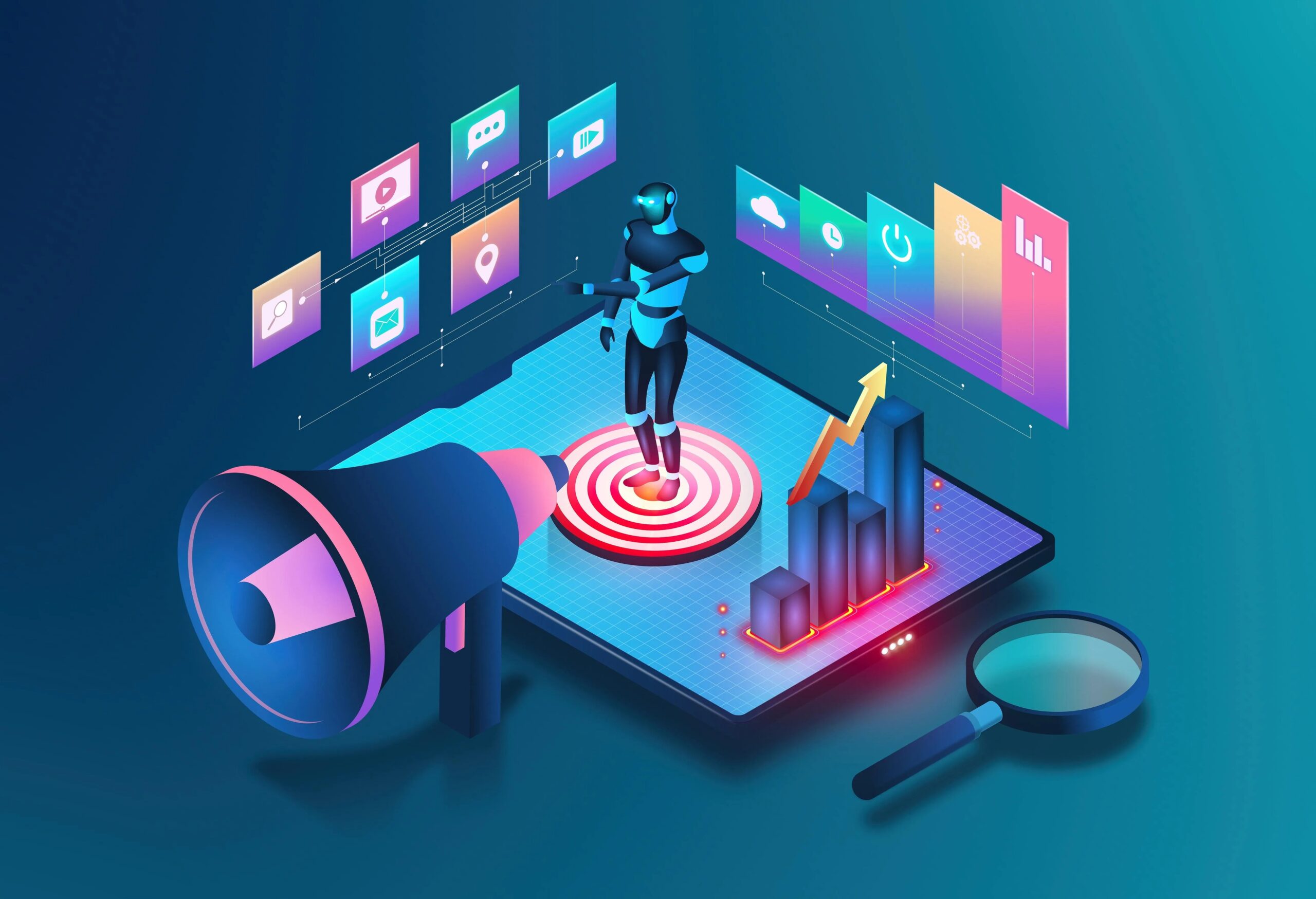
- TechnaCore Ai
AI in Marketing: Personalization at Scale
Marketing has always been about understanding customers, predicting their needs, and delivering the right message at the right time. In the digital age, however, customer expectations have evolved. Modern consumers demand personalized experiences across every touchpoint, from emails and ads to product recommendations and customer service. Meeting these expectations at scale is nearly impossible with traditional methods.
This is where Artificial Intelligence (AI) integration and automation revolutionize marketing. AI not only processes vast amounts of customer data but also enables personalization at scale, ensuring every customer receives tailored experiences without exhausting human resources.
In this article, we’ll explore how AI transforms marketing personalization, its benefits, real-world applications, challenges, and strategies for successful implementation.
Why Personalization Matters in Marketing
Personalization is no longer optional—it is the cornerstone of customer engagement. Studies show that 80% of consumers are more likely to buy from brands that offer personalized experiences. At the same time, generic marketing campaigns often fail to capture attention, resulting in wasted resources and lower ROI.
The challenge for businesses lies in delivering customized experiences to millions of customers simultaneously. AI bridges this gap by combining customer data, behavioral patterns, and predictive analytics to deliver hyper-personalized content and recommendations.
How AI Enables Personalization at Scale
AI-powered marketing systems analyze large volumes of customer data in real-time and provide actionable insights. Here are some key ways AI drives personalization:
1. Customer Segmentation
Traditional segmentation divides customers into broad groups. AI takes it further by identifying micro-segments based on behavior, interests, demographics, and purchase history. This allows businesses to create highly targeted campaigns.
2. Predictive Analytics
Machine Learning algorithms forecast customer behavior, helping marketers anticipate future actions such as purchases, churn, or engagement levels. This enables brands to act proactively instead of reactively.
3. Personalized Recommendations
AI recommendation engines, like those used by Amazon or Netflix, analyze browsing and purchase data to suggest products or content uniquely suited to each customer. This drives engagement and increases sales.
4. Dynamic Content Creation
AI-powered tools automatically generate personalized emails, ad copy, and landing pages. Content adapts in real-time to match customer interests, making interactions more relevant.
5. Chatbots and Virtual Assistants
AI-driven chatbots provide personalized customer service, recommending products or offering solutions based on previous interactions. They enhance customer experience while reducing operational costs.
Benefits of AI-Powered Personalization
Implementing AI in marketing personalization delivers measurable business value:
- Increased Customer Engagement: Personalized messages resonate more strongly with customers, driving higher interaction rates.
- Improved Conversion Rates: Targeted offers and recommendations lead to more sales.
- Customer Loyalty and Retention: Personalized experiences build trust and long-term relationships.
- Cost Efficiency: Automated personalization reduces manual efforts and marketing spend.
- Scalability: AI ensures personalization for millions of customers simultaneously, something human teams alone cannot achieve.
Real-World Examples of AI in Marketing
E-commerce
Retailers use AI to deliver tailored product recommendations, personalized discounts, and optimized shopping experiences. For instance, Amazon’s AI-driven recommendation system generates 35% of its total revenue.
Streaming Services
Netflix uses AI to suggest movies and shows based on viewing history, ensuring users stay engaged for longer periods.
Email Marketing
AI tools like Mailchimp and HubSpot automatically customize subject lines, content, and send times to maximize engagement for each subscriber.
Digital Advertising
Google and Facebook use AI-driven ad targeting to show ads based on user behavior and preferences, ensuring higher ROI for advertisers.
Challenges of AI in Marketing Personalization
While AI brings massive opportunities, businesses must address several challenges:
- Data Privacy Concerns: Collecting and analyzing personal data must comply with regulations like GDPR and CCPA.
- Integration with Existing Systems: AI tools must seamlessly connect with CRMs, analytics platforms, and marketing software.
- Over-Personalization Risks: Being “too personal” can feel intrusive and turn customers away.
- Bias in AI Models: If training data is biased, personalization may reinforce stereotypes or exclude certain groups.
- High Implementation Costs: Small and medium businesses may find AI adoption challenging without proper planning.
Best Practices for Successful AI Personalization
To implement AI-driven personalization effectively, businesses should follow these strategies:
- Start Small and Scale Gradually
Focus on one channel—such as personalized email campaigns—before expanding AI efforts across all marketing platforms. - Ensure Data Accuracy and Compliance
Collect high-quality data and follow all privacy regulations to maintain customer trust. - Combine AI with Human Creativity
AI provides data-driven insights, but human marketers bring creativity, storytelling, and emotional intelligence that AI cannot replicate. - Test and Optimize Continuously
Regularly evaluate the performance of AI-driven campaigns and refine strategies for better outcomes. - Invest in Explainable AI
Choose AI systems that offer transparency in how decisions are made, ensuring marketers understand why certain recommendations are provided.
The Future of AI in Marketing Personalization
AI in marketing will continue to evolve, making personalization even more advanced. Future trends include:
- Hyper-Personalization: Going beyond names and demographics to tailor experiences at the individual level in real-time.
- Voice and Visual Search Optimization: Personalizing marketing for users interacting via voice assistants or image-based search.
- AI-Powered Content Creation: Generative AI creating personalized videos, blogs, and ad creatives at scale.
- Integration with IoT: Personalized experiences delivered through connected devices such as smart speakers and wearables.
Businesses that embrace these innovations will not only increase customer satisfaction but also secure a competitive edge in the digital marketplace.
Conclusion
AI has become a game-changer in marketing by enabling personalization at scale. From predictive analytics and real-time recommendations to automated content creation and customer segmentation, AI empowers businesses to deliver unique experiences tailored to every customer.
However, the key to success lies in balancing automation with human creativity, ensuring personalization is not only efficient but also authentic and ethical. Companies that strategically integrate AI into their marketing will enjoy stronger customer loyalty, higher engagement, and greater business growth.
The future of marketing is human creativity enhanced by AI intelligence, creating powerful personalized experiences at scale.
